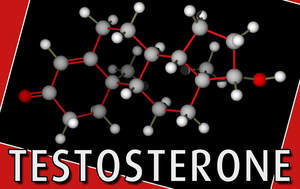Introduction
Viagra, generically known as sildenafil, has been a revolutionary drug since its introduction in the late 1990s, primarily used for the treatment of erectile dysfunction (ED). While its primary function is well-documented, there has been increasing interest in understanding its broader biochemical effects, particularly on hormonal levels in American males. This article delves into the intricate relationship between Viagra usage and its potential impact on the endocrine system, providing insights into how this popular medication might influence the hormonal milieu of its users.
Mechanism of Action of Viagra
Viagra operates by inhibiting the enzyme phosphodiesterase type 5 (PDE5), which leads to increased levels of cyclic guanosine monophosphate (cGMP) in the smooth muscle cells of the penis. This biochemical pathway results in the relaxation of these muscles, facilitating increased blood flow and aiding in achieving and maintaining an erection. While this mechanism is well-understood, the drug's impact on systemic hormonal levels has been less explored.
Impact on Testosterone Levels
Recent studies have begun to shed light on the potential effects of Viagra on testosterone levels. Testosterone, the primary male sex hormone, is crucial for libido, muscle mass, and overall well-being. Some research suggests that Viagra might have a stimulatory effect on testosterone production. For instance, a study published in the *Journal of Sexual Medicine* found that men taking Viagra experienced a modest increase in serum testosterone levels compared to a placebo group. However, these findings are not universally consistent, and more research is needed to confirm this effect.
Effects on Other Hormones
Beyond testosterone, Viagra's influence on other hormones such as luteinizing hormone (LH) and follicle-stimulating hormone (FSH) has also been investigated. LH and FSH are essential for regulating testosterone production and spermatogenesis. Preliminary data indicate that Viagra might lead to slight elevations in LH levels, potentially as a compensatory mechanism to maintain testosterone levels. However, the clinical significance of these changes remains uncertain, and further studies are required to elucidate these relationships fully.
Potential Implications for Hormonal Health
The potential for Viagra to affect hormonal levels raises important considerations for its long-term use. For American males, particularly those with pre-existing hormonal imbalances or those on hormone replacement therapy, understanding these effects is crucial. Clinicians might need to monitor hormonal levels more closely in patients using Viagra regularly, especially if they exhibit symptoms of hormonal dysregulation.
Clinical Considerations and Future Research
Given the preliminary nature of the current research, it is essential to approach the findings with caution. Clinicians should be aware of the potential for Viagra to influence hormonal levels and consider this when prescribing the medication. Future research should focus on larger, more diverse cohorts to better understand the long-term effects of Viagra on the endocrine system. Additionally, exploring the molecular mechanisms by which Viagra might affect hormone production could provide valuable insights into its broader physiological impacts.
Conclusion
Viagra's role in treating erectile dysfunction is well-established, but its effects on hormonal levels in American males warrant further investigation. While some studies suggest potential influences on testosterone, LH, and FSH, the clinical significance of these findings remains to be fully understood. As research continues to evolve, healthcare providers and patients alike must remain informed about the potential hormonal implications of this widely used medication. By doing so, they can better manage the health and well-being of American males relying on Viagra for their sexual health.
Contact Us Today For A Free Consultation

- Comparing Viagra, Levitra, and Cialis: Effective ED Treatments for American Men [Last Updated On: February 20th, 2025] [Originally Added On: February 20th, 2025]
- Revolutionizing ED Care: Exploring Advanced Treatments Beyond Traditional Medications [Last Updated On: February 20th, 2025] [Originally Added On: February 20th, 2025]
- Decoding the History of Sildenafil: A Groundbreaking Revolution in Treating Erectile Dysfunction [Last Updated On: February 25th, 2025] [Originally Added On: February 25th, 2025]
- Decoding Sildenafil: The Pillar of Viagra's Unprecedented Success [Last Updated On: February 26th, 2025] [Originally Added On: February 26th, 2025]
- Comparative Analysis: Viagra And Generic Sildenafil [Last Updated On: February 27th, 2025] [Originally Added On: February 27th, 2025]
- Decoding the Power Pill: A Comprehensive Exploration of Viagra's Mechanism [Last Updated On: February 28th, 2025] [Originally Added On: February 28th, 2025]
- Unfolding the Odyssey of Erectile Dysfunction Treatments: A Chronological Insight from Viagra to Contemporary Remedies [Last Updated On: February 28th, 2025] [Originally Added On: February 28th, 2025]
- Demystifying the Biochemical Pathways of Sildenafil: The Engine Behind Viagra's Potency [Last Updated On: March 1st, 2025] [Originally Added On: March 1st, 2025]
- Underscoring the Role of Viagra in Cardiovascular Health: An In-depth Examination of Benefits and Potential Risks [Last Updated On: March 2nd, 2025] [Originally Added On: March 2nd, 2025]
- Optimizing Sildenafil Dosage for Erectile Dysfunction: Guidelines, Adjustments, and Safety Considerations [Last Updated On: March 3rd, 2025] [Originally Added On: March 3rd, 2025]
- Understanding Viagra: Side Effects and Safety for American Men [Last Updated On: March 4th, 2025] [Originally Added On: March 4th, 2025]
- Exploring the Impact of Diet on Viagra Efficacy: Foods to Embrace and Avoid [Last Updated On: March 5th, 2025] [Originally Added On: March 5th, 2025]
- Managing Side Effects of Viagra for Effective Erectile Dysfunction Treatment [Last Updated On: March 5th, 2025] [Originally Added On: March 5th, 2025]
- Exploring Viagra's Role in Treating Erectile Dysfunction and Hypertension [Last Updated On: March 6th, 2025] [Originally Added On: March 6th, 2025]
- Impact of Age on Viagra's Efficacy: Insights for American Men Seeking ED Treatment [Last Updated On: March 7th, 2025] [Originally Added On: March 7th, 2025]
- The Interplay of Viagra and Diabetes: Efficacy, Safety, and Management Insights [Last Updated On: March 8th, 2025] [Originally Added On: March 8th, 2025]
- Exploring Viagra's Psychological Impact on Self-Esteem in American Men: A Comprehensive Analysis [Last Updated On: March 9th, 2025] [Originally Added On: March 9th, 2025]
- The Evolution of Male Sexual Health: The Impact of Viagra on Culture and Well-being [Last Updated On: March 12th, 2025] [Originally Added On: March 12th, 2025]
- Unveiling the Life-Changing Impact of Viagra: Real Stories from American Men [Last Updated On: March 13th, 2025] [Originally Added On: March 13th, 2025]
- Unveiling the Impact of Lifestyle on Viagra's Effectiveness in American Males [Last Updated On: March 15th, 2025] [Originally Added On: March 15th, 2025]
- Viagra and Libido: Understanding the Impact and Dispelling Myths for American Males [Last Updated On: March 17th, 2025] [Originally Added On: March 17th, 2025]
- Viagra and Alcohol: Safety, Effects, and Guidelines for American Males [Last Updated On: March 19th, 2025] [Originally Added On: March 19th, 2025]
- Viagra's Recreational Use: Risks, Rewards, and Health Impacts in American Males [Last Updated On: March 19th, 2025] [Originally Added On: March 19th, 2025]
- Placebo Effect in Viagra: Psychological Impact on American Males' ED Treatment [Last Updated On: March 19th, 2025] [Originally Added On: March 19th, 2025]
- Viagra's Impact on U.S. Market and Health Insights for American Men [Last Updated On: March 19th, 2025] [Originally Added On: March 19th, 2025]
- Generic Sildenafil: Revolutionizing ED Treatment with Affordability and Accessibility [Last Updated On: March 20th, 2025] [Originally Added On: March 20th, 2025]
- Sildenafil: From Angina Drug to ED Treatment Revolutionizing American Men's Health [Last Updated On: March 20th, 2025] [Originally Added On: March 20th, 2025]
- Viagra: Uses, Drug Interactions, and Safety Management for American Men [Last Updated On: March 20th, 2025] [Originally Added On: March 20th, 2025]
- Viagra: Debunking Myths and Clarifying Facts for American Men's Sexual Health [Last Updated On: March 20th, 2025] [Originally Added On: March 20th, 2025]
- Global Viagra Pricing: Factors, Comparisons, and U.S. Cost Navigation for American Males [Last Updated On: March 21st, 2025] [Originally Added On: March 21st, 2025]
- Safeguarding Health: Identifying and Avoiding Counterfeit Viagra for American Males [Last Updated On: March 21st, 2025] [Originally Added On: March 21st, 2025]
- Viagra's Role in Managing Pulmonary Hypertension in American Males [Last Updated On: March 22nd, 2025] [Originally Added On: March 22nd, 2025]
- Viagra Usage Guide: Dos, Don'ts, and Safety Tips for American Males [Last Updated On: March 22nd, 2025] [Originally Added On: March 22nd, 2025]
- Viagra's Impact on Mental Health: Enhancing Well-being in American Men with ED [Last Updated On: March 22nd, 2025] [Originally Added On: March 22nd, 2025]
- Viagra's Impact: Transforming ED Treatment and Social Attitudes in America [Last Updated On: March 22nd, 2025] [Originally Added On: March 22nd, 2025]
- Viagra and Exercise: Synergistic Effects on Sexual Health in American Males [Last Updated On: March 22nd, 2025] [Originally Added On: March 22nd, 2025]
- Viagra: Enhancing Sexual Confidence and Transforming ED Treatment in American Men [Last Updated On: March 22nd, 2025] [Originally Added On: March 22nd, 2025]
- Stress-Induced ED in American Males: Understanding and Treating with Viagra [Last Updated On: March 23rd, 2025] [Originally Added On: March 23rd, 2025]
- Sildenafil vs. Other Oral ED Medications: Efficacy, Onset, and Safety for American Men [Last Updated On: March 23rd, 2025] [Originally Added On: March 23rd, 2025]
- Viagra's Impact on Prostate Health: Insights for American Men [Last Updated On: March 24th, 2025] [Originally Added On: March 24th, 2025]
- Sildenafil's Versatile Therapeutic Uses in American Males Beyond Erectile Dysfunction [Last Updated On: March 24th, 2025] [Originally Added On: March 24th, 2025]
- Viagra: Enhancing Sexual Performance and Quality of Life in American Men [Last Updated On: March 24th, 2025] [Originally Added On: March 24th, 2025]
- Viagra: Enhancing Blood Flow for American Males with ED [Last Updated On: March 24th, 2025] [Originally Added On: March 24th, 2025]
- Sildenafil's Off-Label Uses: Benefits for American Males Beyond Erectile Dysfunction [Last Updated On: March 24th, 2025] [Originally Added On: March 24th, 2025]
- Viagra in Pop Culture: Iconic References and Impact on Male Health Perceptions [Last Updated On: March 24th, 2025] [Originally Added On: March 24th, 2025]
- Smoking Reduces Viagra Efficacy: Quit for Better ED Treatment Outcomes [Last Updated On: March 25th, 2025] [Originally Added On: March 25th, 2025]
- Navigating Viagra's Legal Landscape: Regulations and Policies for American Males [Last Updated On: March 25th, 2025] [Originally Added On: March 25th, 2025]
- Generic Sildenafil: Revolutionizing ED Treatment with Affordable, Effective Options [Last Updated On: March 25th, 2025] [Originally Added On: March 25th, 2025]
- Sildenafil's Impact on Urology: From ED to Broader Applications in American Men [Last Updated On: March 25th, 2025] [Originally Added On: March 25th, 2025]
- Cultural Attitudes Shaping Viagra Use Among American Males: Masculinity, Media, and Generational Views [Last Updated On: March 25th, 2025] [Originally Added On: March 25th, 2025]
- Viagra: Enhancing Sexual Function and Its Potential Impact on Hormonal Health in Men [Last Updated On: March 26th, 2025] [Originally Added On: March 26th, 2025]
- Navigating Viagra Discussions with Doctors: A Guide for American Men [Last Updated On: March 26th, 2025] [Originally Added On: March 26th, 2025]
- Viagra: Revolutionizing Erectile Dysfunction Treatment and Men's Sexual Health [Last Updated On: March 26th, 2025] [Originally Added On: March 26th, 2025]
- Sildenafil: Understanding Its Role in Treating Erectile Dysfunction and Beyond [Last Updated On: March 26th, 2025] [Originally Added On: March 26th, 2025]
- Viagra's Role in Sexual Rehabilitation for American Males Post-Surgery [Last Updated On: March 26th, 2025] [Originally Added On: March 26th, 2025]
- Viagra: From ED Treatment to Recreational Use Debate Among American Males [Last Updated On: March 26th, 2025] [Originally Added On: March 26th, 2025]
- Viagra and Privacy: Navigating ED Treatment and Data Security in the Digital Age [Last Updated On: March 26th, 2025] [Originally Added On: March 26th, 2025]
- Viagra's Economic Impact: Revolutionizing ED Treatment and Pharmaceutical Market Dynamics [Last Updated On: March 26th, 2025] [Originally Added On: March 26th, 2025]
- Viagra: Revolutionizing Treatment of Erectile Dysfunction in American Males [Last Updated On: March 27th, 2025] [Originally Added On: March 27th, 2025]
- Viagra and Male Fertility: Dispelling Myths and Clarifying Facts for American Males [Last Updated On: March 27th, 2025] [Originally Added On: March 27th, 2025]
- Erectile Dysfunction: Causes, Viagra Treatment, and Lifestyle Management Strategies [Last Updated On: March 27th, 2025] [Originally Added On: March 27th, 2025]
- Viagra: Revolutionizing ED Treatment and Sexual Health in the U.S. [Last Updated On: March 27th, 2025] [Originally Added On: March 27th, 2025]
- Viagra's Impact on American Couples' Intimacy and Relationship Dynamics [Last Updated On: March 27th, 2025] [Originally Added On: March 27th, 2025]
- Maximizing Viagra Benefits: Timing, Dosage, Lifestyle for Enhanced Sexual Health [Last Updated On: March 27th, 2025] [Originally Added On: March 27th, 2025]
- Viagra's Impact on ED: Ethical Marketing and Public Health Concerns in the U.S. [Last Updated On: March 28th, 2025] [Originally Added On: March 28th, 2025]
- Viagra: Understanding Use, Effects, and Integration into Health Routine [Last Updated On: March 28th, 2025] [Originally Added On: March 28th, 2025]
- Sildenafil Contraindications: Essential Guide for Safe Usage in American Males [Last Updated On: March 29th, 2025] [Originally Added On: March 29th, 2025]
- Telemedicine Revolutionizes ED Management with Viagra for American Males [Last Updated On: March 29th, 2025] [Originally Added On: March 29th, 2025]
- Viagra's Journey: From Discovery to FDA Approval and Impact on ED Treatment [Last Updated On: March 29th, 2025] [Originally Added On: March 29th, 2025]
- Testosterone Levels and Viagra Efficacy in American Men: Optimizing ED Treatment [Last Updated On: March 30th, 2025] [Originally Added On: March 30th, 2025]
- Viagra vs. Natural Remedies for ED: Efficacy, Safety, and Cost Compared [Last Updated On: March 30th, 2025] [Originally Added On: March 30th, 2025]
- Viagra: Enhancing Sexual Satisfaction and Relationship Dynamics in American Males [Last Updated On: March 31st, 2025] [Originally Added On: March 31st, 2025]
- Long-Term Viagra Use: Benefits, Risks, and Considerations for American Men [Last Updated On: March 31st, 2025] [Originally Added On: March 31st, 2025]
- Viagra Use in Men with Chronic Illnesses: Safety, Interactions, and Management [Last Updated On: April 2nd, 2025] [Originally Added On: April 2nd, 2025]
- Sildenafil: Restoring Sexual Function in American Men Post-Injury [Last Updated On: April 4th, 2025] [Originally Added On: April 4th, 2025]
- Sildenafil Pharmacokinetics: Optimizing ED Treatment for American Males [Last Updated On: April 6th, 2025] [Originally Added On: April 6th, 2025]
- Viagra's Role in Treating Erectile Dysfunction Among Younger American Males [Last Updated On: April 6th, 2025] [Originally Added On: April 6th, 2025]
- Viagra Interactions: Safety and Efficacy for American Males with ED [Last Updated On: April 8th, 2025] [Originally Added On: April 8th, 2025]
- Viagra vs. Other ED Treatments: Clinical Outcomes and Options for American Men [Last Updated On: April 8th, 2025] [Originally Added On: April 8th, 2025]
- Erectile Dysfunction: Sildenafil vs. Lifestyle Changes - A Comparative Analysis [Last Updated On: April 9th, 2025] [Originally Added On: April 9th, 2025]
Word Count: 556




















